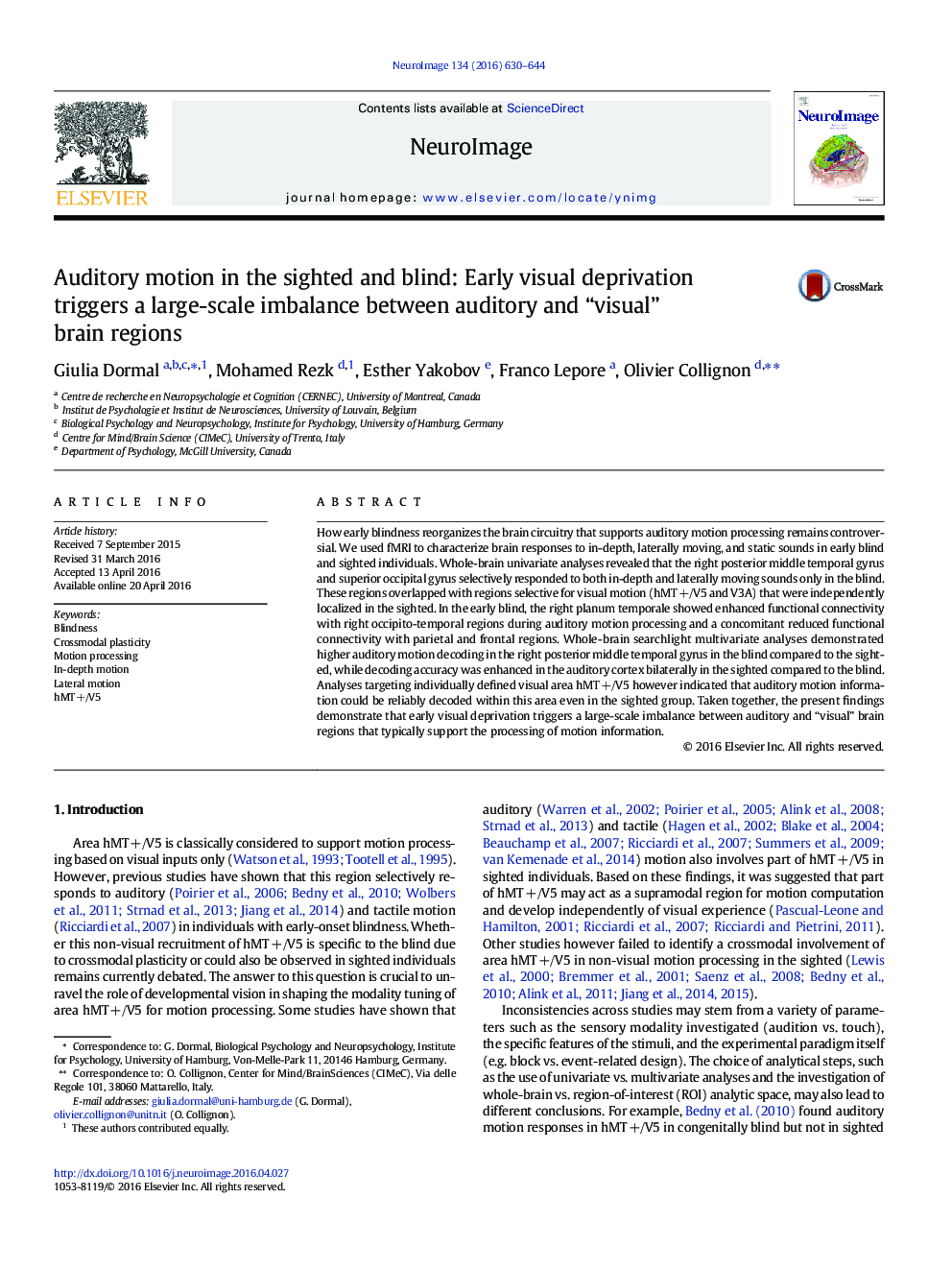| Article ID | Journal | Published Year | Pages | File Type |
|---|---|---|---|---|
| 6023380 | NeuroImage | 2016 | 15 Pages |
â¢Selectivity to moving sounds in right occipito-temporal regions in the early blindâ¢Brain network supporting auditory motion posteriorizes in the early blind.â¢Higher auditory motion decoding in occipito-temporal regions in the early blindâ¢Lower auditory motion decoding in temporal regions in the early blindâ¢Auditory motion information can be decoded in the sighted within individual hMT +/V5.
How early blindness reorganizes the brain circuitry that supports auditory motion processing remains controversial. We used fMRI to characterize brain responses to in-depth, laterally moving, and static sounds in early blind and sighted individuals. Whole-brain univariate analyses revealed that the right posterior middle temporal gyrus and superior occipital gyrus selectively responded to both in-depth and laterally moving sounds only in the blind. These regions overlapped with regions selective for visual motion (hMTÂ +/V5 and V3A) that were independently localized in the sighted. In the early blind, the right planum temporale showed enhanced functional connectivity with right occipito-temporal regions during auditory motion processing and a concomitant reduced functional connectivity with parietal and frontal regions. Whole-brain searchlight multivariate analyses demonstrated higher auditory motion decoding in the right posterior middle temporal gyrus in the blind compared to the sighted, while decoding accuracy was enhanced in the auditory cortex bilaterally in the sighted compared to the blind. Analyses targeting individually defined visual area hMTÂ +/V5 however indicated that auditory motion information could be reliably decoded within this area even in the sighted group. Taken together, the present findings demonstrate that early visual deprivation triggers a large-scale imbalance between auditory and “visual” brain regions that typically support the processing of motion information.
